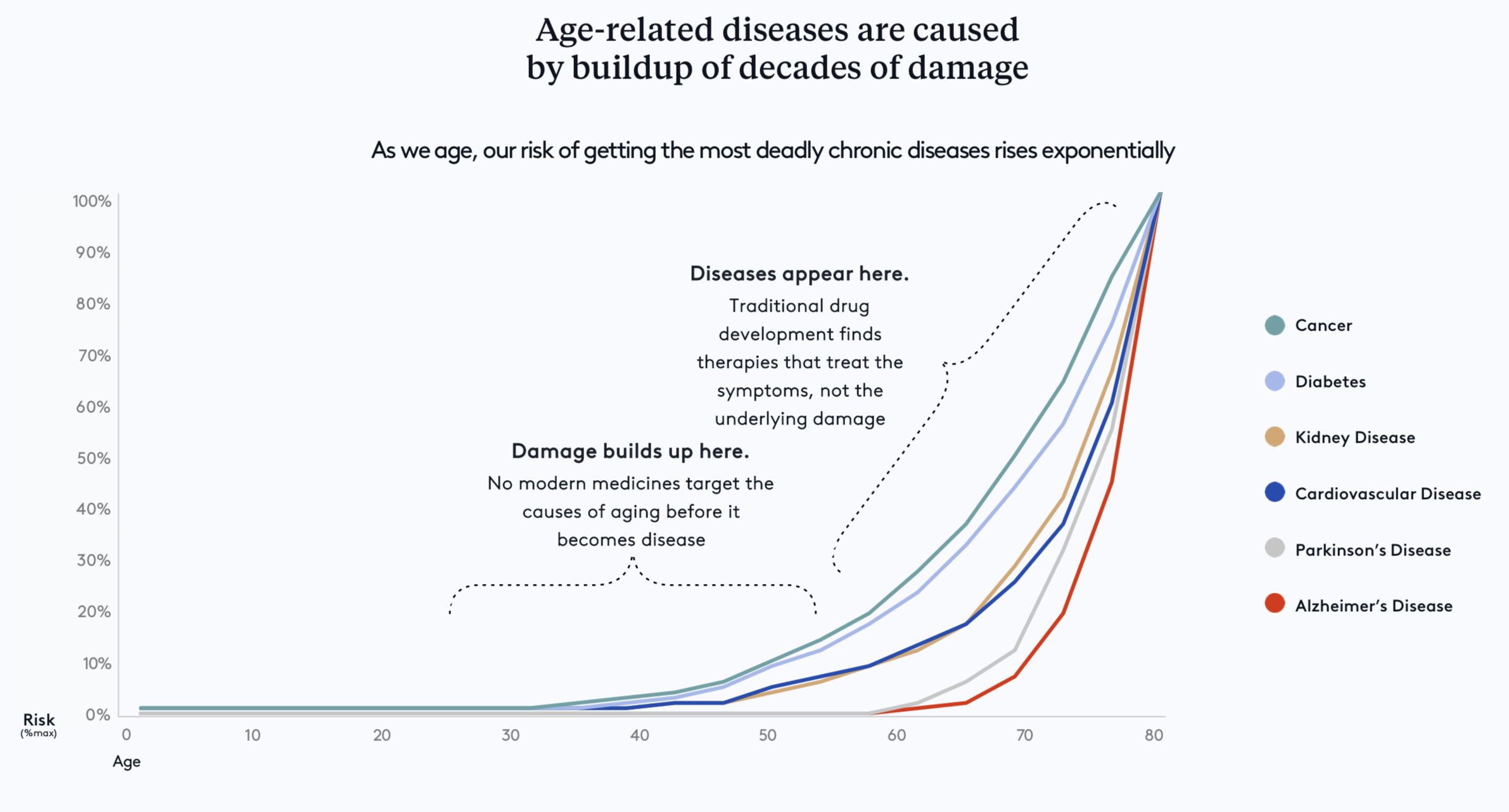Why we're investing in the emerging space of healthspan & longevity.
As humans, our vision for better communication, better energy resources, or going to other planets has always been huge. Still, it’s strange that our vision of our own body, our existence, and our desire to live longer and healthier with our loved ones was always so short and myopic.
Medicine so far
So far, the medicine industry developed a narrative, a direction where our body’s health shouldn’t be something that should occupy our time (especially when young). We typically test our bodies when symptoms arise, and medicine intervenes when these symptoms occur. Testing before that seems exaggerated, like a waste of time and resources.
This system treats diseases as an infection; we treat them when they occur. Historically, the most immediate threats to human life were infections, which led to the rise of antibiotics and vaccines. The success of penicillin created a tunnel vision that leaned towards treating symptomatic diseases rather than prevention.
Indeed, modern medicine has achieved a lot. We don’t die from cholera, hepatitis, or typhosis anymore. But we die from strokes, cancer, or kidney failure. Actually, We did great with infections but applied the same methodology to all medical diseases, but these are two completely different stories.
Prevention
The truth is that 70% of diseases are curable if diagnosed early, from cancer to strokes. We die from preventable diseases. Yet, measures like a full-body MRI or simply assessing our inflammation biomarkers for preventive purposes aren't considered unless we exhibit symptoms.
In contrast to infections, diseases like cancer, diabetes, Alzheimer's, strokes, etc., can develop over decades. But when young, probably our body is strong enough to keep them silent and keep us functioning. As we age, our body's mechanisms deteriorate. And as a result, a build-up disease without treatment in a deteriorating body makes the disease the winner, causing (a premature) death.
So, we face a dual challenge: the prolonged accumulation of diseases and the deterioration of our bodily mechanisms, both resulting from poor lifestyle choices, natural design, or perhaps a combination of both.
Going beyond that, even a healthy individual who might never develop any of the major diseases during their lifetime will eventually experience bodily failure due to aging.
The hallmarks of aging
The mechanisms that explain these are called “hallmarks of aging”. The patterns of these hallmarks suggest that aging, at a cellular and molecular level, is characterized by a loss of balance and efficiency in the body's regulatory, reparative, and cleaning processes. The result is an accumulation of waste, increased inflammation, and the gradual decline of optimal cellular function.
These hallmarks and diseases are not separate things of course. Diseases accelerate these mechanisms. And these mechanisms of aging can accelerate diseases. But as described, prevention was never in the picture, let alone the hallmarks of aging.
Typically, doctors address the symptoms, overlooking the broader scope of aging. Insurance policies rarely cover preventive strategies. Clearly, our system is broken.
A new paradigm
Of course, Big Pharma has followed the money, but there is a new emerging space of scientists/founders/investors working on changing the narrative.
What if we could identify the biomarkers that lead us to deterioration? What if we measured those early on before we got the symptoms? What if we could use interventions to ensure that no condition in our body progresses beyond stage 1? What if we could prevent any disease, and in a few years from now, we think of cancer or Alzheimer and other diseases the same way we think of all these deadly infections of the past?
And this is not a fantasy; Pioneers in longevity and healthspan research have already identified numerous biomarkers and strategies that halt or even reverse up to 20% of our bodily decline. And this is just the beginning.
Innovations, ranging from accessible full-body MRIs and blood-based early cancer detection biomarkers to organ regeneration, have begun to emerge.
A few individuals have started to experience these benefits, and the goal is to normalize these and future interventions.
